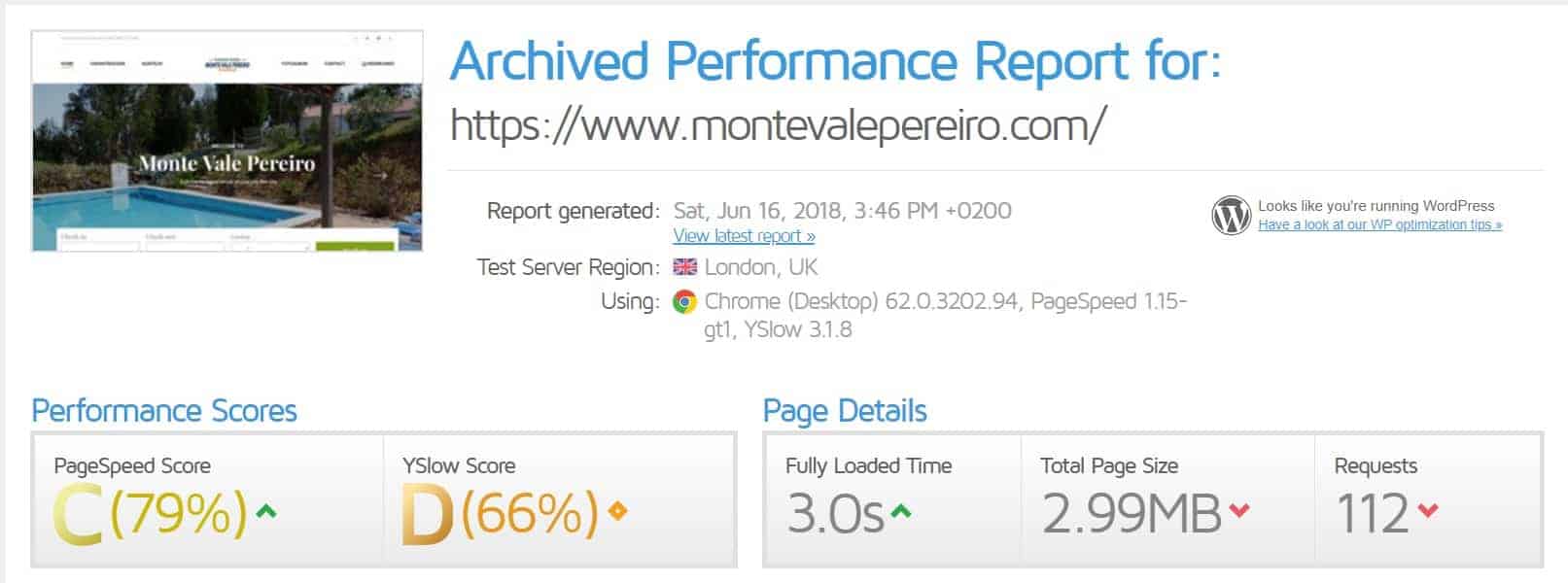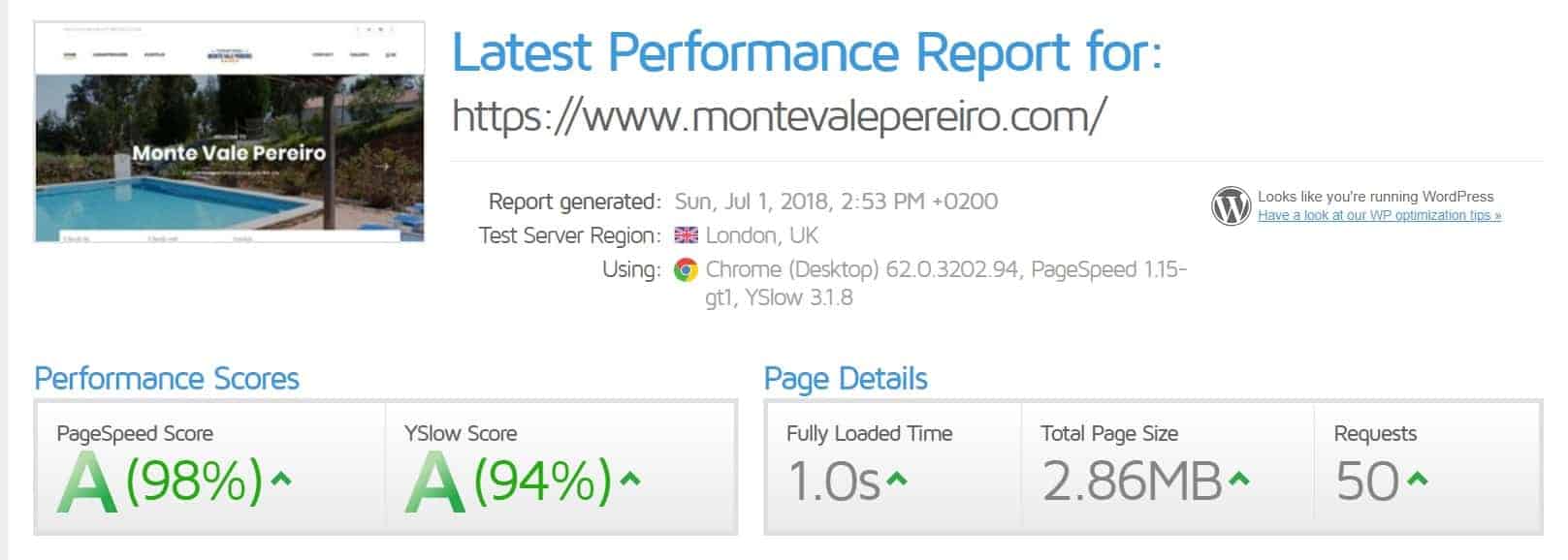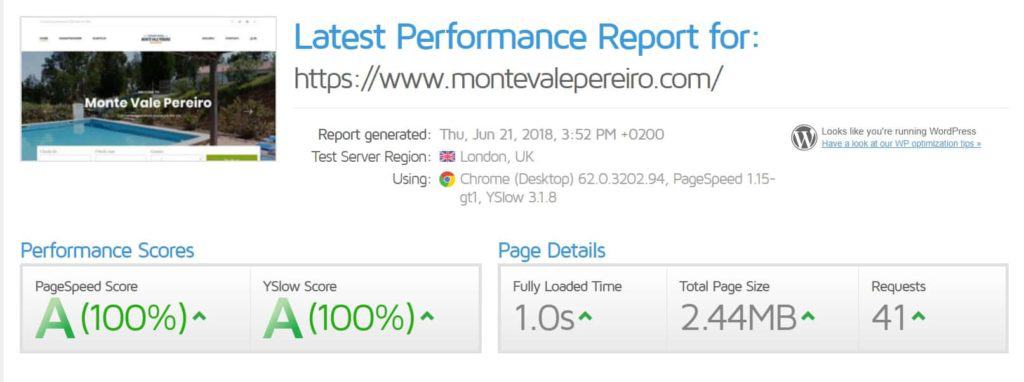


Swift Performance is a relatively new cache plugin on the market for WordPress and I was curious if it would work just as well as WP Rocket. This comparison shows real live website data using WP Rocket, and later switching to Swift Performance.
I have purchased Swift Performance developer license for a fair comparison, as Swift Performance has also a free version (Lite). All our websites uses WP Rocket for about 4 years now, and I am extremely satisfied with its performance. But, saying that I´m always looking for improvements, into testing new stuff and comparing.
So, here is a test comparison between WP Rocket and Swift Performance.
WP Rocket is known as one of the best caching solutions for WordPress and is a premium plugin (no free version available). It is user-friendly and has a perfect marketing strategy, which certainly contributed to the many good reviews on the internet.
The plugin will function correctly after activation; as a result you won’t be racking your head against the wall trying to configure it. Those of you who are technologically literate can dive into its advanced options and set up a custom configuration.
Features
WP Rocket is a feature-rich caching plugin that offers cache preloading, browser caching, GZIP compression and options for HTML, CSS and JavaScript minification and concatenation.
Aside from the technical bits, WP Rocket is user-friendly and doesn’t require you to mess with any advanced configuration settings (unless of course you absolutely want to). The plugin starts functioning as soon as you activate it.
Business Website: https://wp-rocket.me/
Documentation: https://docs.wp-rocket.me/
Swift Performance is in my opinion the best WordPress cache plugins. There is a free version (Lite) and a Pro Version. It is feature-rich yet simple to use. Even better, this plugin launches upon its activation a Setup Wizard, where you can choose for automatic or manual configuration.
Swift Performance provides an intelligent, modern caching system. You can even cache AJAX request, dynamic pages, and you can add exceptions (URL, page or content based rules).
Features
Page caching is working out of the box. It is compatible with WooCommerce, bbPress, Cloudflare and Varnish as well. It will boost your performance, improve SEO scores, and create a better user experience. The Pro version even comes with a Plugin Organizer and (free) Image Optimizer.
Business Website: https://swiftperformance.io/
Documentation: https://swiftperformance.io/faq/
Unofficial Guide: https://wpjohnny.com/swift-performance-wordpress-cache-plugin-unofficial-guide/
Okay, enough talking, what is the outcome of the test?
The website in question is Montevalepereiro.com. This is the business website from one of our clients, and at the time of testing, the website uses WordPress 4.9.6, it is hosted on a VPS and runs a custom theme and about 10 plugins. This website used WP Rocket for the last 2 years.
Testing is done using GTMETRIX from London, UK.
| Plugin | Fully Loaded Time | Pagespeed Score | YSlow Score |
| None | 3.0 seconds | C – 79% | D – 66% |
| WP Rocket | 1.0 second | A – 98% | A – 94% |
| Swift Performance | 1.0 second | A – 100% | A – 100% |
And here the results of the print screens
WITHOUT CACHE

WP ROCKET

SWIFT PERFORMANCE

Conclusion of Swift Performance Pro Vs. WP Rocket.
To avoid misunderstanding, I paid for both licenses from WP Rocket and Swift Performance, are not working for these companies and/or have none relationship to them in any other way. I develop web applications and optimize all sort of websites. For optimizing WordPress websites I use a lot of different techniques.
At first sight I was pretty sure that Swift Performance did a bit better job. The loading speed was exactly the same, but the GT Metrics scores where better with Swift Performance. It looks quit impressive a 100%/100% score. But taking a closer look, besides the higher Metrics, the way of loading some pages with Swift Performance was a bit “funny”. It could annoy visitors. Above that, I had to disable/change some plugins to get it work properly. For example a Pop Up plugin (Master PopUps) was acting very strange with Swift Performance while working with WP Rocket it worked out of the box. On the other hand, with WP Rocket I had to disable Lazy Load and combine Scripts as well, because it caused some conflicts in the layout. Both cache plugins needed some manual configuration to get it cached without generating any conflict.
I contacted both plugin authors; Swift Performance solved the two problems. WP Rocket admitted that Swift Performance was doing a better job in this case then their own cache plugin. They even offered a refund, but withdrew that generous offer later….
What plugin should you choose?
Swift is relative new and is get to be the best all in one optimization plugin soon, has some awesome features, such as free image optimizing (can you believe it), critical font and plugin organizer. The support was always a bit slow, but nowerdays amazing fast and they are always willing to help and come up with a solution. Swift Performance plugin is – ‘Swiss Army knife’ for speeding up WordPress websites. The total page size and number of requests where lower then WP Rocket, so Swift did really a good job.
WP Rocket is user friendly, good looking and comes also with good support. Unfortunately they do not offer free image optimizing and a way to organize plugins. Should they?
At the end of the day it is al about the page loading time and both cache plugins achieved a loading time in 1 second and therefore if you have to choose (why not both?) right now I would definitely recommend Swift Performance. It is certainly a close call, but let´s hope that these competitors stay sharp and continue to work on improving their product, from where we could benefit all.
In case you want also a high speed loading website, just contact us.
note: I didn´t test the performance after activiting the two plugins (out of the box). The examples and numbers are after configuration and testing repeatly with different settings in a way that the front end of the website does not show any conflict for visitors or in browser console for developers.